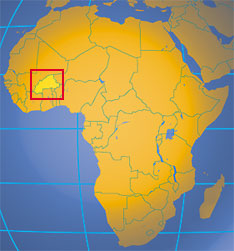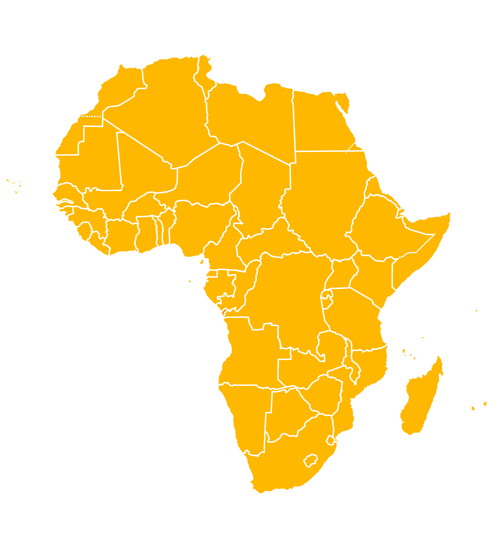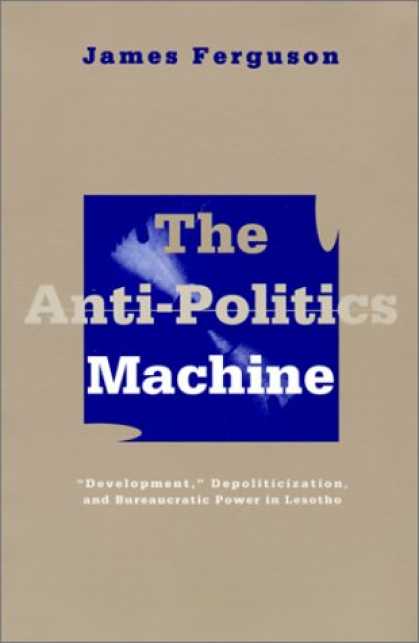Bill Easterly, the ex-blogger who just can't stop, writes about a conversation he had with GiveWell, a charity reviewer/giving guide that relies heavily on rigorous evidence to pick programs to invest in. I've been meaning to write about GiveWell's approach -- which I generally think is excellent. Easterly, of course, is an aid skeptic in general and a critic of planned, technocratic solutions in particular. Here's an excerpt from his notes on his conversation with GiveWell:
...a lot of things that people think will benefit poor people (such as improved cookstoves to reduce indoor smoke, deworming drugs, bed nets and water purification tablets) {are things} that poor people are unwilling to buy for even a few pennies. The philanthropy community’s answer to this is “we have to give them away for free because otherwise the take-up rates will drop.” The philosophy behind this is that poor people are irrational. That could be the right answer, but I think that we should do more research on the topic. Another explanation is that the people do know what they’re doing and that they rationally do not want what aid givers are offering. This is a message that people in the aid world are not getting.
Later, in the full transcript, he adds this:
We should try harder to figure out why people don’t buy health goods, instead of jumping to the conclusion that they are irrational.
Also:
It's easy to catch people doing irrational things. But it's remarkable how fast and unconsciously people get things right, solving really complex problems at lightning speed.
I'm with Easterly, up to a point: aid and development institutions need much better feedback loops, but are unlikely to develop them for reasons rooted in their nature and funding. The examples of bad aid he cites are often horrendous. But I think this critique is limited, especially on health, where the RCTs and all other sorts of evidence really do show that we can have massive impact -- reducing suffering and death on an epic scale -- with known interventions. [Also, a caution: the notes above are just notes and may have been worded differently if they were a polished, final product -- but I think they're still revealing.]
Elsewhere Easterly has been more positive about the likelihood of benefits from health aid/programs in particular, so I find it quite curious that his examples above of things that poor people don't always price rationally are all health-related. Instead, in the excerpts above he falls back on that great foundational argument of economists: if people are rational, why have all this top-down institutional interference? Well, I couldn't help contrasting that argument with this quote highlighted by another economist, Tyler Cowen, at Marginal Revolution:
Just half of those given a prescription to prevent heart disease actually adhere to refilling their medications, researchers find in the Journal of American Medicine. That lack of compliance, they estimate, results in 113,00 deaths annually.
Let that sink in for a moment. Residents of a wealthy country, the United States, do something very, very stupid. All of the RCTs show that taking these medicines will make them live longer, but people fail to overcome the barriers at hand to take something that is proven to make them live longer. As a consequence they die by the hundreds of thousands every single year. Humans may make remarkably fast unconscious decisions correctly in some spheres, sure, but it's hard to look at this result and see any way in which it makes much sense.
Now think about inserting Easterly's argument against paternalism (he doesn't specifically call it that here, but has done so elsewhere) in philanthropy here: if people in the US really want to live, why don't they take these medicines? Who are we to say they're irrational? That's one answer, but maybe we don't understand their preferences and should avoid top-down solutions until we have more research.
A reductio ad absurdum? Maybe. On the one hand, we do need more research on many things, including medication up-take in high- and low-income countries. On the other hand, aid skepticism that goes far enough to be against proven health interventions just because people don't always value those interventions rationally seems to line up a good deal with the sort of anti-paternalism-above-all streak in conservatism that opposes government intervention in pretty much every area. Maybe it's a good policy to try out some nudge-y (libertarian paternalism, if you will) policies to encourage people to take their medicine, or require people to have health insurance they would not choose to buy on their own.
Do you want to live longer? I bet you do, and it's safe to assume that people in low-income countries do as well. Do you always do exactly what will help you do so? Of course not: observe the obesity pandemic. Do poor people really want to suffer from worms or have their children die from diarrhea? Again, of course not. While poor people in low-income countries aren't always willing to invest a lot of time or pay a lot of money for things that would clearly help them stay alive for longer, that shouldn't be surprising to us. Why? Because the exact same thing is true of rich people in wealthy countries.
People everywhere -- rich and poor -- make dumb decisions all the time, often because those decisions are easier in the moment due to our many irrational cognitive and behavioral tics. Those seemingly dumb decisions usually reveal the non-optimal decision-making environments in which we live, but you still think we could overcome those things to choose interventions that are very clearly beneficial. But we don't always. The result is that sometimes people in low-income countries might not pay out of pocket for deworming medicine or bednets, and sometimes people in high-income countries don't take their medicine -- these are different sides of the same coin.
Now, to a more general discussion of aid skepticism: I agree with Easterly (in the same post) that aid skeptics are a "feature of the system" that ultimately make it more robust. But it's an iterative process that is often frustrating in the moment for those who are implementing or advocating for specific programs (in my case, health) because we see the skeptics as going too far. I'm probably one of the more skeptical implementers out there -- I think the majority of aid programs probably do more harm than good, and chose to work in health in part because I think that is less true in this sector than in others. I like to think that I apply just the right dose of skepticism to aid skepticism itself, wringing out a bit of cynicism to leave the practical core.
I also think that there are clear wins, supported by the evidence, especially in health, and thus that Easterly goes too far here. Why does he? Because his aid skepticism isn't simply pragmatic, but also rooted in an ideological opposition to all top-down programs. That's a nice way to put it, one that I think he might even agree with. But ultimately that leads to a place where you end up lumping things together that are not the same, and I'll argue that that does some harm. Here are two examples of aid, both more or less from Easterly's post:
- Giving away medicines or bednets free, because otherwise people don't choose to invest in them; and,
- A World Bank project in Uganda that "ended up burning down farmers’ homes and crops and driving the farmers off the land."
These are a both, in one sense, paternalistic, top-down programs, because they are based on the assumption that sometimes people don't choose to do what is best for themselves. But are they the same otherwise? I'd argue no. One might argue that they come from the same place, and an institution that funds the first will inevitably mess up and do the latter -- but I don't buy that strong form of aid skepticism. And being able to lump the apparently good program and the obviously bad together is what makes Easterly's rhetorical stance powerful.
If you so desire, you could label these two approaches as weak coercion and strong coercion. They are both coercive in the sense that they reshape the situations in which people live to help achieve an outcome that someone -- a planner, if you will -- has decided is better. All philanthropy and much public policy is coercive in this sense, and those who are ideologically opposed to it have a hard time seeing the difference. But to many of us, it's really only the latter, obvious harm that we dislike, whereas free medicines don't seem all that bad. I think that's why aid skeptics like Easterly group these two together, because they know we'll be repulsed by the strong form. But when they argue that all these policies are ultimately the same because they ignore people's preferences (as demonstrated by their willingness to pay for health goods, for example), the argument doesn't sit right with a broader audience. And then ultimately it gets ignored, because these things only really look the same if you look at them through certain ideological lenses.
That's why I wish Easterly would take a more pragmatic approach to aid skepticism; such a form might harp on the truly coercive aspects without lumping them in with the mildly paternalistic. Condemning the truly bad things is very necessary, and folks "on the inside' of the aid-industrial complex aren't generally well-positioned to make those arguments publicly. However, I think people sometimes need a bit of the latter policies, the mildly paternalistic ones like giving away medicines and nudging people's behavior -- in high- and low-income countries alike. Why? Because we're generally the same everywhere, doing what's easiest in a given situation rather than what we might choose were the circumstances different. Having skeptics on the outside where they can rail against wrongs is incredibly important, but they must also be careful to yell at the right things lest they be ignored altogether by those who don't share their ideological priors.





